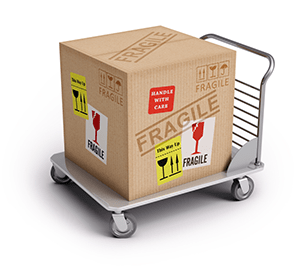
Dealing with the stress of moving in the military can be difficult. On top of uprooting yourself, and potentially your family, from your current residence, you’ll have to plan a move and make sure your belongings arrive at your new station safely.
To make your move easier, there are some questions you should ask a mover before booking your date to lessen the stress of your military relocation:
Is my preferred moving date available?
Asking your mover which days are available will guarantee you can move when you prefer. Relocations between May and August, especially around Memorial Day and the 4th of July, are difficult to book because these are the busiest moving times of the year. Ask your moving company what days they can accommodate your move.
What are shipping weight allowances?
If the military or a government-approved carrier is handling your relocation, you’ll be given specific weight allowances for your move. Your compensation amount depends on how many dependents you have and your rank, and going over this allowance can get expensive. Fortunately, your allowance may not include some of your military gear. Asking your mover about shipping weight allowances and items that are not factored into your final weigh-in can save you money in overage fees.
Am I protected against damaged, lost, or stolen items?
Any good mover will have some level of protection against damaged, lost, or stolen items during your military move. Be sure to ask your mover what options are available for protecting your personal items.
Will I be given a tracking number for my shipment?
With the high-tech GPS tracking gear you’re used to in the military, it’ll be frustrating if your mover tells you, “We can’t locate your shipment at this time.” Although we may not be able to give you minute-to-minute coordinates of your shipment, any A-list moving company should have up-to-date estimates of your last shipment location.
Are there restrictions on what I can ship?
Federal and international laws restrict various items from being shipped. Some of these items include aerosols, ammunition, loaded weapons (well, of course!), fire extinguishers, fuels, batteries, and many other items not listed here. For a full list of articles that a mover cannot transport for you, contact your moving company.
What will happen to my items if no one is available to receive the delivery?
Things happen. Cars get flat tires and delay travel times. Family members forget they have to be awake to receive important shipping deliveries at home. Whatever the reason is, you may find yourself in a situation where no one is available to receive your shipment. Ask your mover about their process in this situation and arrange for a plan B to prevent significant delays or additional storage fees.
Asking these questions before booking your move will prepare you for a seamless trip.
We’ve been servicing our military for the better part of last century, and we’re here to make the process of moving in the military easy and convenient. If you’d like more information about our services for moving in the military, contact us here at Nilson Van.





